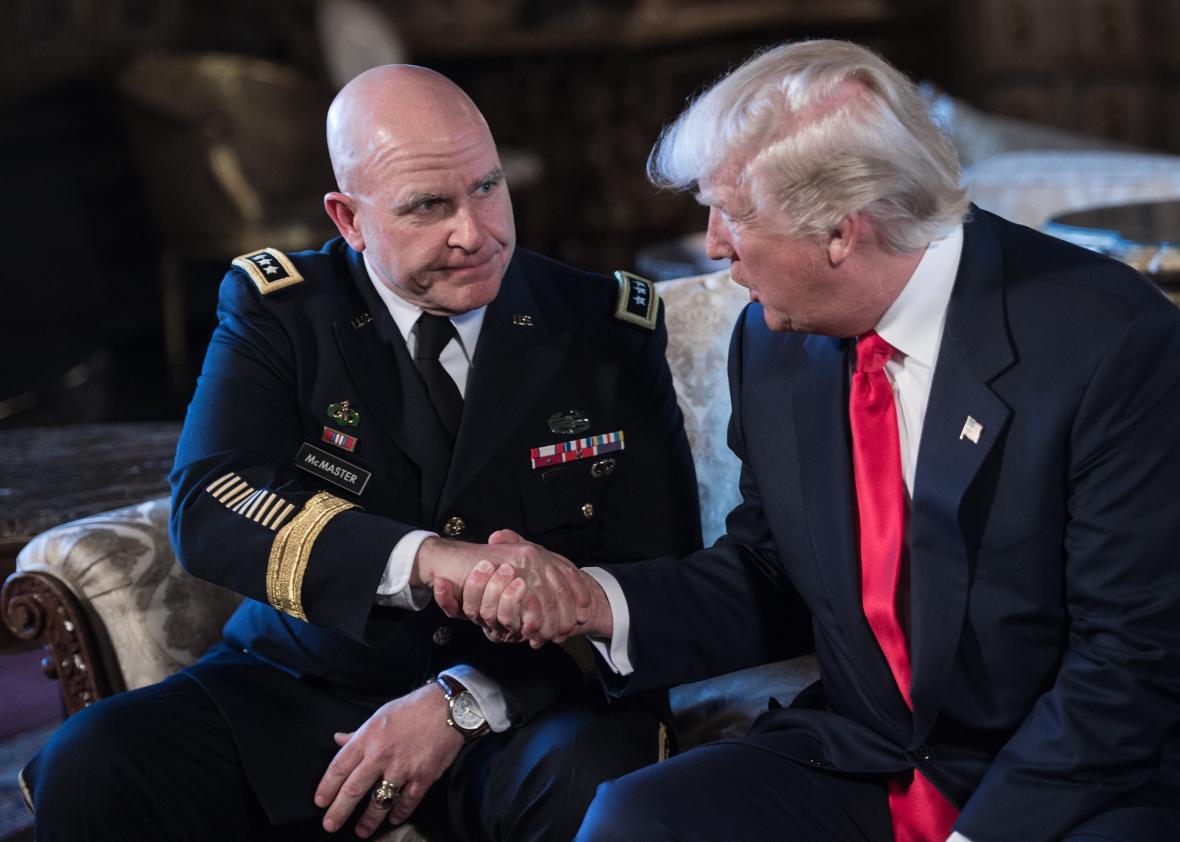The wait is over. President Donald Trump announced on Monday that he had selected Lieutenant General H.R. McMaster to be his new national security adviser, showing how the commander in chief continues to rely on members of the military to play key roles in his national security and foreign policy teams. Trump made the announcement after interviewing several candidates to replace Michael Flynn, who was forced to resign amid claims that he kept Vice President Pence in the dark about the content of conversations with a Russian official before the president took office.
“He’s a man of tremendous talent and tremendous experience,” Trump said as he introduced McMaster. “He is highly respected by everyone in the military, and we’re very honored to have him.” Retired Army Lt. Gen. Keith Kellogg, who has been serving as acting national security adviser, will become the National Security Council chief of staff. “I think that combination is something very, very special,” Trump said. “What a team. This is a great team.” Trump’s first choice for the job, retired Vice Adm. Robert Harward, turned down the offer.
McMaster is a widely respected military strategist although his selection surprised some because he is known as someone who is fond of questioning authority having made his name as a strong critic of the military leadership during the Vietnam War. McMaster is now frequently described as one of the leading intellectuals in the Army who is often credited with pushing the Pentagon toward a new strategy of combating terrorists and insurgents.
One person who wasn’t surprised? Foreign Policy’s Thomas Ricks, who had called him the most likely pick after Harward turned down the offer. “He has good combat experience, he was a good trainer, and he led the 3rd Armored Cavalry Regiment well in his deployment to Iraq, most notably in pacifying Tell Afar, to the west of Mosul,” notes Ricks. The two big differences between him and Harward is that McMaster is on active duty and “his wife won’t kill him if he takes the job, as Harward’s wife might have.”
At a time when Russia’s potential influence on the election is in the news, McMaster does seem to be acutely aware of Kremlin’s rising power. Last year, he had been tasked with studying Moscow and a newly resurgent Russia that had caught the Pentagon largely off-guard. “It is clear that while our Army was engaged in Afghanistan and Iraq, Russia studied U.S. capabilities and vulnerabilities and embarked on an ambitious and largely successful modernization effort,” McMaster told the Senate Armed Services Committee last year.
The two other candidates for the job were former U.N. ambassador John Bolton and Lt. Gen Robert Caslen Jr. When he announced his pick, Trump made a point of praising Bolton, who had already been passed over for an administration job. “We had some really good meetings with him. Knows a lot. He had a good number of ideas that I must tell you I agree very much with,” the president said. “So we’ll be talking with John Bolton in a different capacity.”
